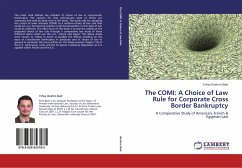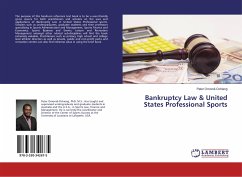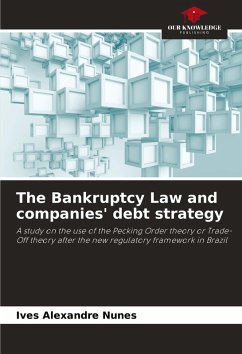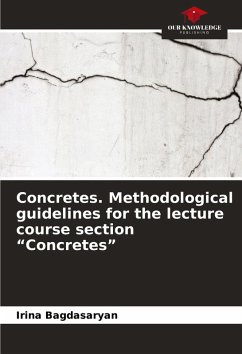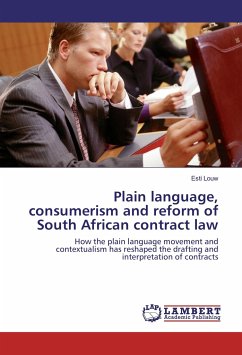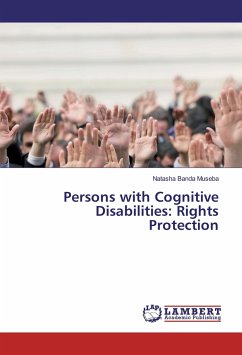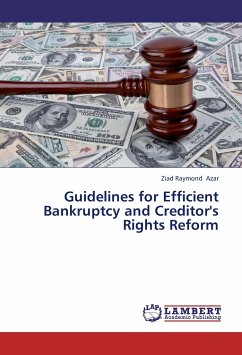
Guidelines for Efficient Bankruptcy and Creditor's Rights Reform
Versandkostenfrei!
Versandfertig in 6-10 Tagen
52,99 €
inkl. MwSt.

PAYBACK Punkte
26 °P sammeln!
What does corporate bankruptcy law aim to achieve and how should it achieve its aim? This book comprehensively reviews and analyzes the theoretical debate and the existing empirical evidence that aspire to answer these two questions. It studies what various country-specific and cross-country empirical studies have shown, and what they have failed to prove so far. By highlighting the findings and methodological limitations of these studies, this book formulates and implements a research agenda whose final purpose is to provide a decisive answer to the debate on what are, or should be, the goals...
What does corporate bankruptcy law aim to achieve and how should it achieve its aim? This book comprehensively reviews and analyzes the theoretical debate and the existing empirical evidence that aspire to answer these two questions. It studies what various country-specific and cross-country empirical studies have shown, and what they have failed to prove so far. By highlighting the findings and methodological limitations of these studies, this book formulates and implements a research agenda whose final purpose is to provide a decisive answer to the debate on what are, or should be, the goals and means of bankruptcy law. While protecting creditors seems always a right policy choice that enhances the supply of credit, a carefully crafted collective bankruptcy statute that balances the rights of creditors and debtors equally promotes credit availability. In addition, it provides creditors with higher recovery rates in bankruptcy and significantly lowers the cost of capital. Overall, this book argues that efficient collective procedures are more equitable and more conductive to financial development than divisive auction bankruptcies.



